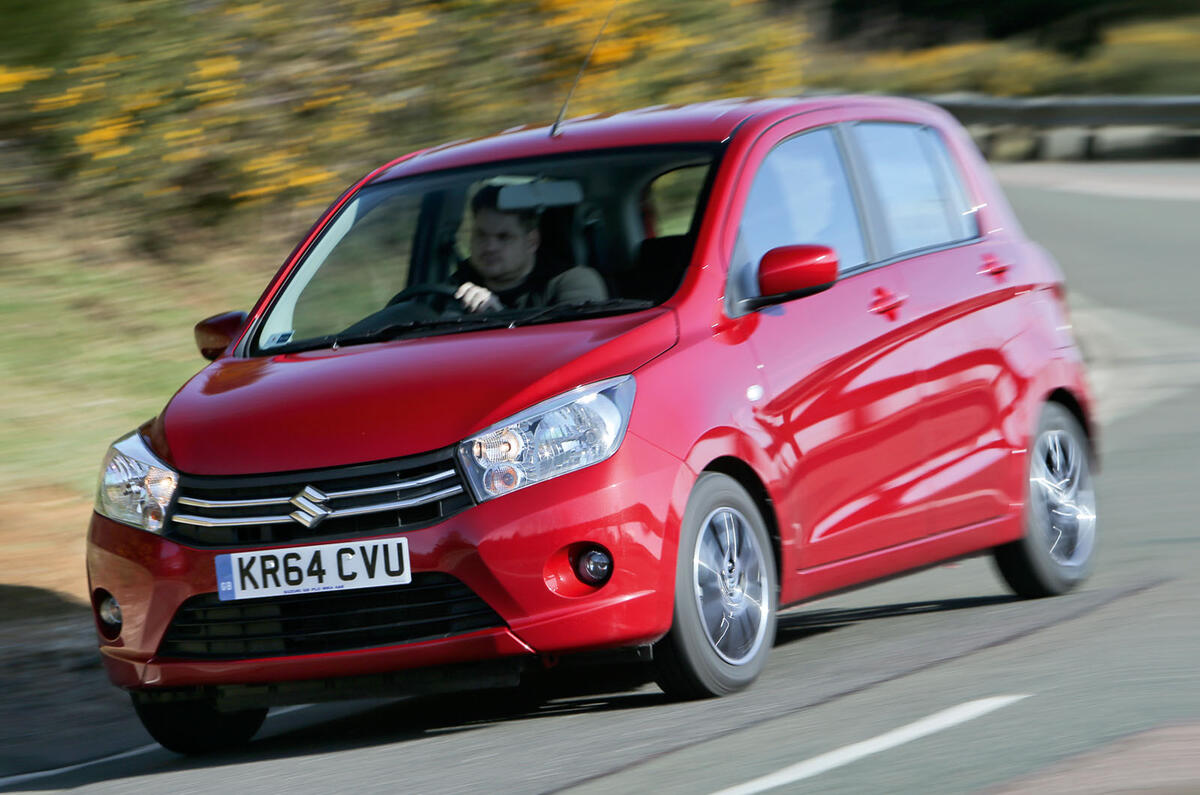MONDAY - Who’d choose a boxy, 67bhp, three-cylinder Japanese car for a 400-mile round trip, London to Deeside, if more powerful options were available? I would, if the car were decent.
The choice this time was a Suzuki Celerio, one of which will soon join our long-term fleet, as well as starring in next week’s road test. Ahead of these verdicts, let’s just say the Suzuki is compact, willing, cheerful and unpretentious. And it has perfect brakes, before you ask.
Finding reasons for liking affordable small cars is easy. Important to me is that they let you opt completely out of the ‘testosterone challenge’ that colours every yard you drive in an Audi R8 or BMW M3.
Another plus is the ability to zip unhindered through gaps small enough to stop even a Ford Focus. But this Suzuki’s most beguiling quality is its sheer willingness.
There’s something life-affirming about attacking a long gradient at 5000rpm and 70mph in fourth and discovering how gamely the little engine will carry that speed right to the top. Weird though this may sound, in a car five times the price and power, you’re only faintly impressed when it crests the same hill going 50mph faster.
WEDNESDAY - Very impressed with car bosses of the UK, who came out fighting in a central London meeting today in support of the cause of cars with diesel engines.
They’re already selling super-clean Euro 6 diesels despite the fact that new regs don’t force them to do so until September. If you read the Sunday papers, you’ll know that, as a type, diesels have been tarred and feathered recently, principally because, according to academic research, their particulates and nitrogen oxide emissions are deemed to be “killing our children”.
The key point is that these latest-gen car diesels are massively cleaner than their ancestors. Emissions of particulates have fallen 96% since 1996, while output of NOx has fallen 84% since 2000.
No one pretends that the job is done (not least because old-tech cars will live a long life on our roads), but it’s now perfectly true to say that in places like London, drivers can make a big contribution to clean air quality by buying a new diesel car.
THURSDAY - Talk of the devil. Took my first drive in the new 1.5-litre Ford Focus diesel and found it pokey, smooth and quiet. Seems to me it obeys the practical rule that will persuade consumers to choose such engines: it’s as desirable as it is environmentally responsible.
SATURDAY - The return of warmer weather brings a welcome reduction in differences of opinion between me and the Steering Committee – when we’re reversing out of our drive in the Range Rover Sport, anyway.
When it’s cold, the missus is inclined to jump into the car, which I’ve just started, and make a lunge for the seat heaters, which you actuate via the screen.
However, her urgent desire for a warm bottom tends to get interrupted by the fact that I’ve just selected reverse, which means an image from the rear-facing camera takes over the screen, delaying actuation of the seat heaters. If JLR’s systems engineers only knew the difficulties this causes, they’d fix it fast.








Join the debate
Add your comment
Diesel in small cars
Surely most of the taxi & bus
Euro VI Diesels